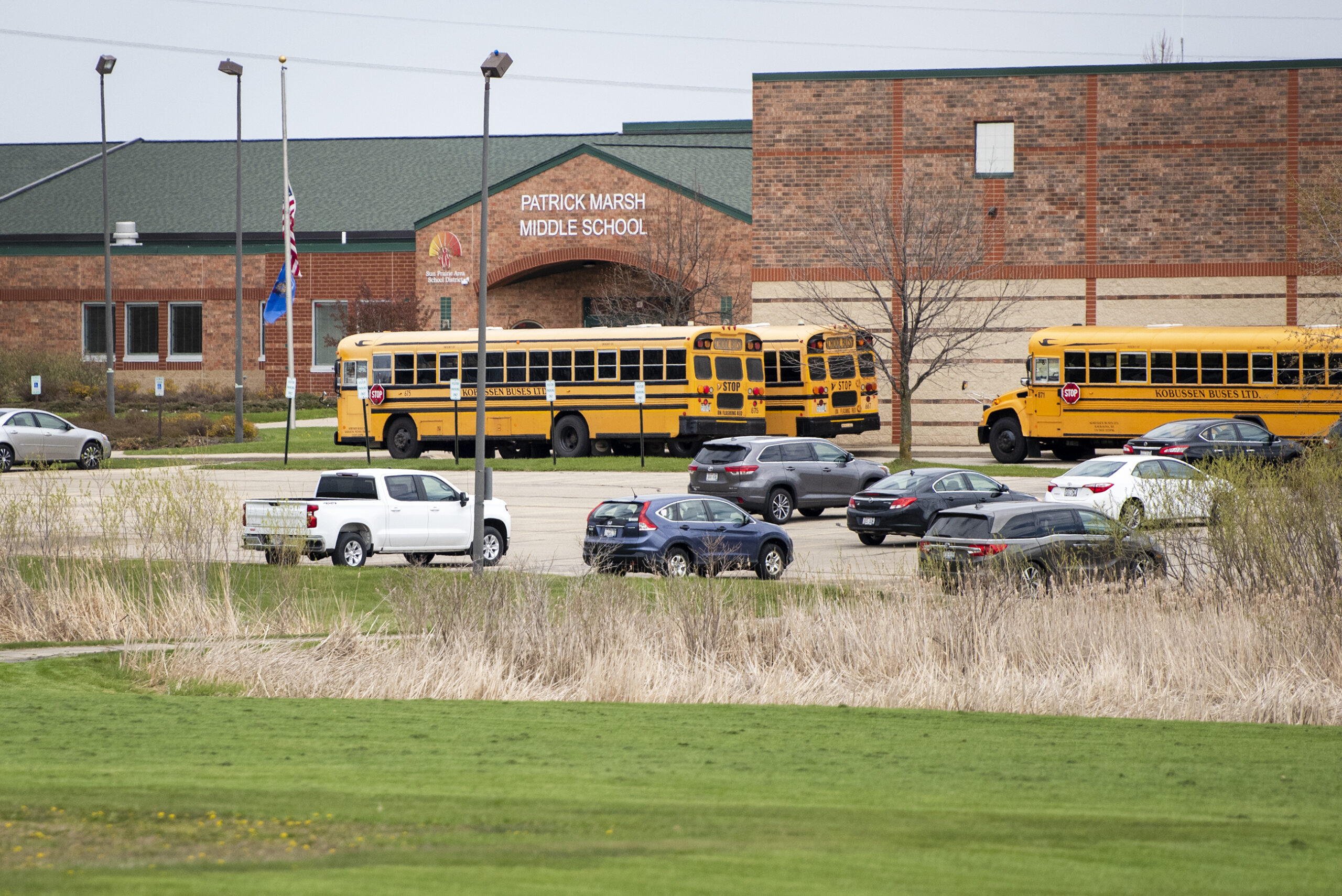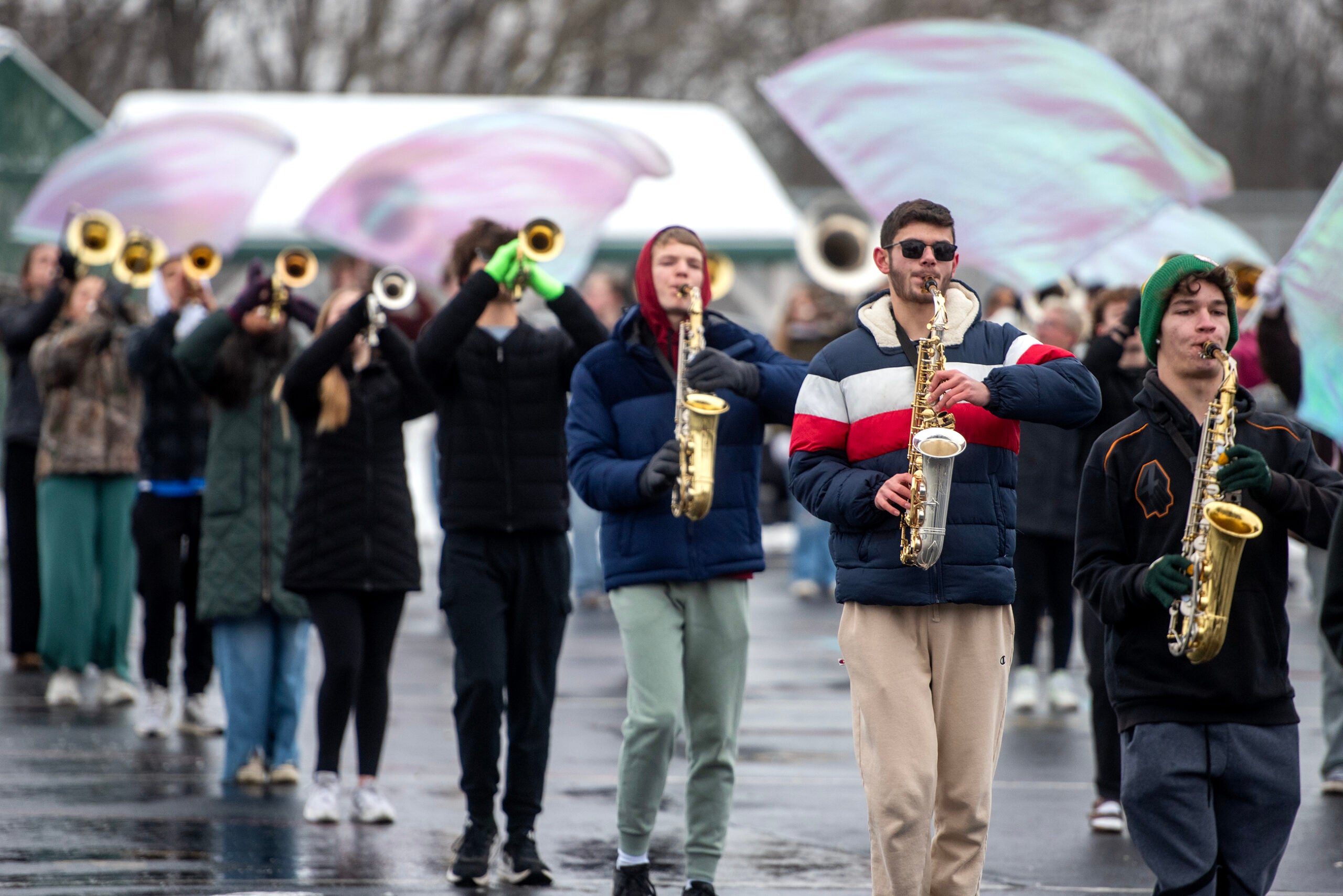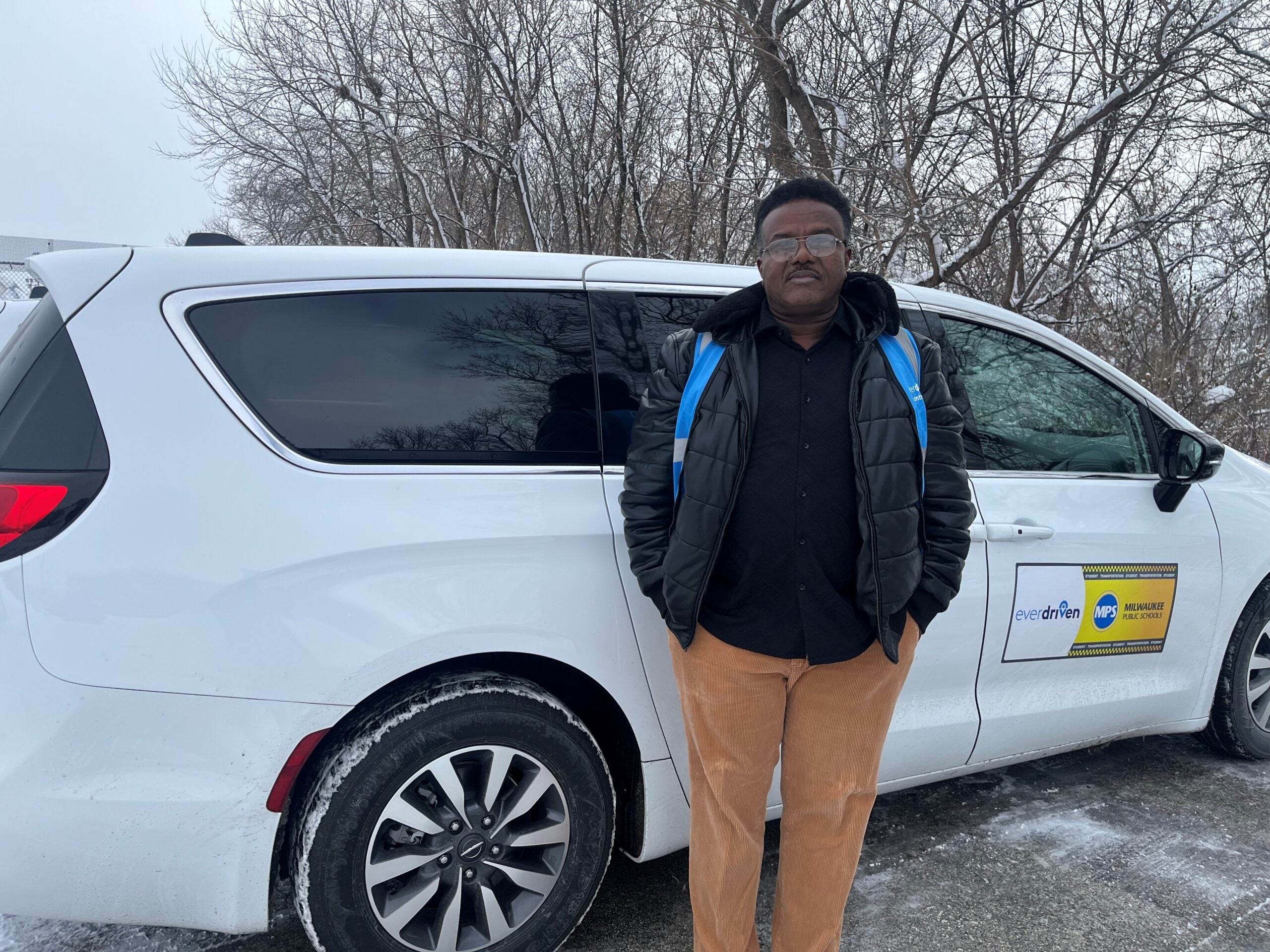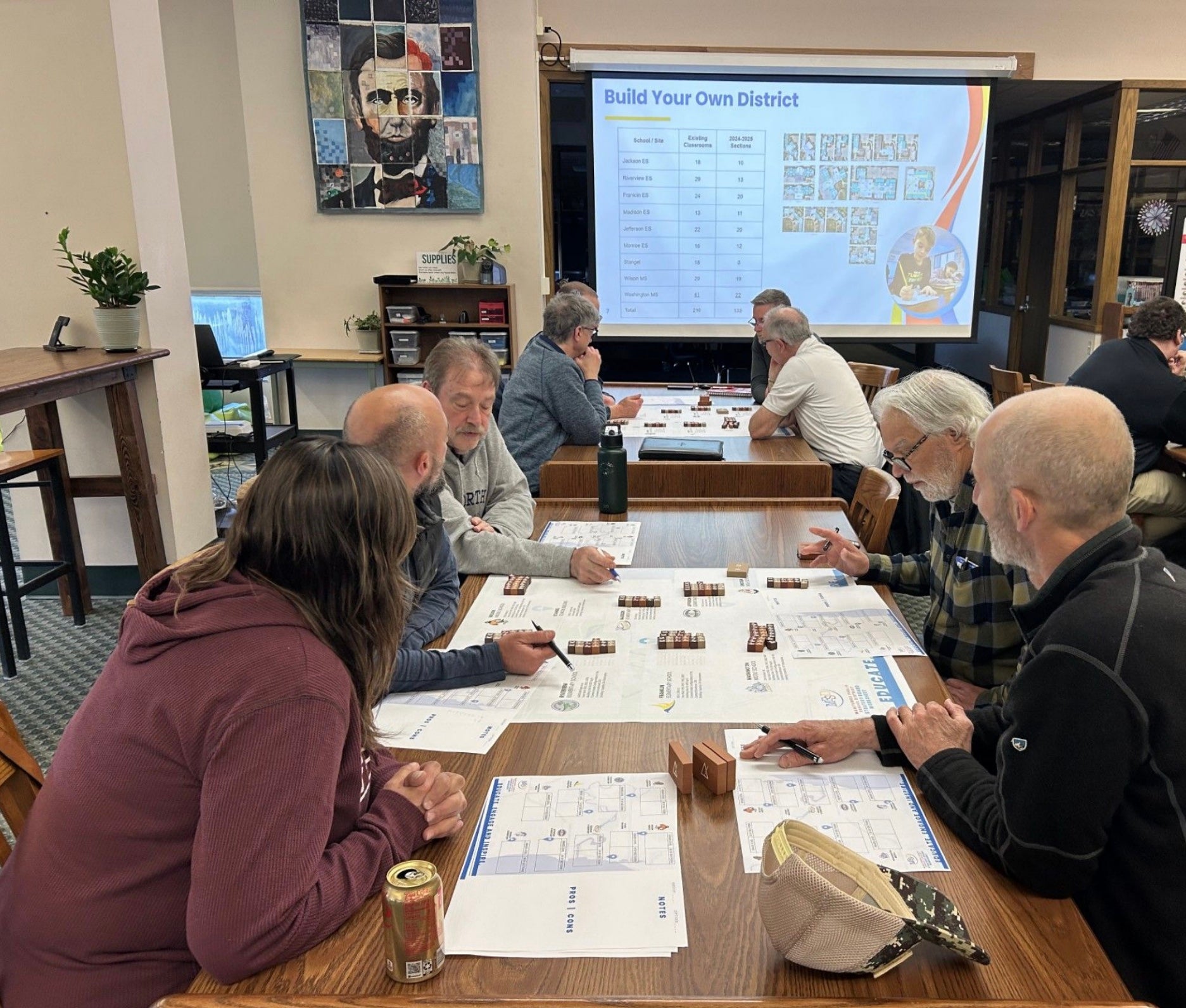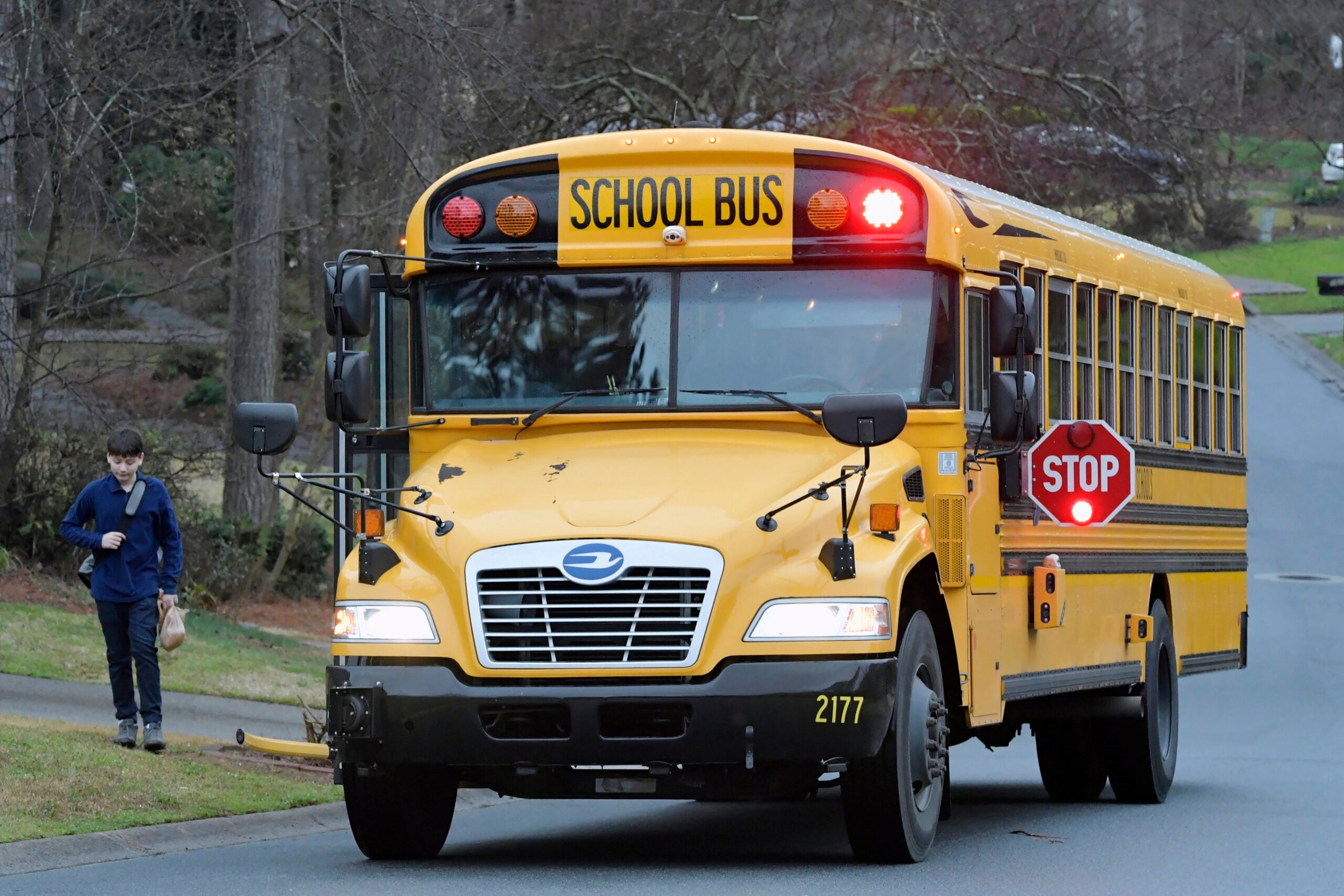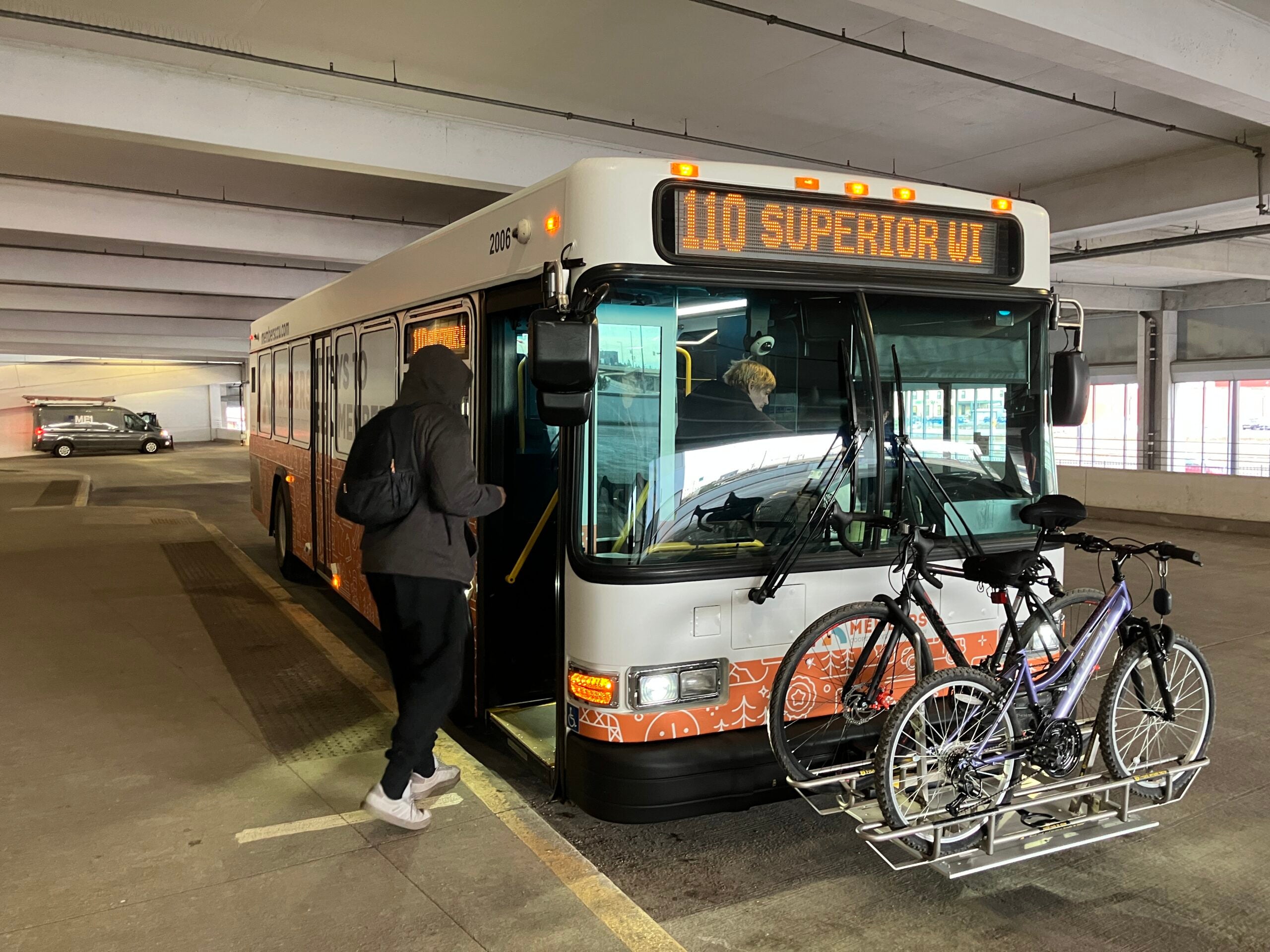Children are returning to class amid a persistent shortage of school bus drivers. Staffing levels have rebounded but not fully recovered from pandemic lows, and industry leaders say filling the positions has long been a struggle.
An aging workforce, regulatory hurdles and misconceptions about the job are all likely contributing factors in the shortage. Although the need varies around the state, the Wisconsin School Bus Association estimates 15 to 20 percent of driver jobs remain unfilled.
Marty Klukis, general manager of Student Transit in Eau Claire, said the “stigma” of working with school children can dissuade potential drivers.
News with a little more humanity
WPR’s “Wisconsin Today” newsletter keeps you connected to the state you love without feeling overwhelmed. No paywall. No agenda. No corporate filter.
“The majority of the folks I talk to say, ‘I could never do that.’ And I was one of those guys,” he said. “But, you know what, you get behind the wheel, you start impacting and having a positive influence on those little humans. And you go, ‘Ah, this is pretty groovy. I really dig this.’”
Klukis said he thinks “school bus driving is more of a calling than it is a job.”
Wisconsin School Bus Association Executive Director Cherie Hime said about half of Wisconsin students rely on yellow school buses to get to class.
“It’s a very important job — getting our kids to school and home again,” Hime said. “Otherwise, they may not receive their education. So it definitely is a big player in equity to education.”
Hime said at many districts around the state last year, everyone from managers and owners of bus companies to school district leaders had to drive to make sure routes were covered. Some companies have had to combine routes, making for longer trips.
Paul Wessel runs Hurricane Busing in the Hayward Community School District in northern Wisconsin. It’s the fourth-largest district in the state by square miles, and many students live a half hour drive from their school. Creating routes between students’ homes, and then combining those routes because of a lack of drivers, has become increasingly difficult, Wessel said.
“You can only put so many kids on a bus and only go so far in a certain amount of time,” he said. “You know, without picking kids up at five in the morning and not getting them home until seven at night, which just isn’t feasible for anybody.”
Some reforms have been made in recent years to encourage more people to become drivers. The Wisconsin Department of Transportation has temporarily exempted school bus drivers from having to identify engine parts when obtaining a commercial driver’s license. In August, Gov. Tony Evers also signed an exemption to allow school board members to drive buses.
Wessell said he doubts those changes will result in adding many drivers. Because of the hours – a few in the morning, then a few more in the afternoon — retirees are a potential pool. But many see the licensing requirements as too cumbersome, Wessell said.
Some of the requirements to obtain a CDL include a written test, criminal background check, proof of physical fitness and regular driving tests for renewal.
“That’s what I see turns a lot of older people off,” Wessel said. “When they come in and, ‘Ah, I’m not going through all that.’ You know, ‘That sounds like a lot.’”
Klukis agreed. He said there is not much of a bench to replace drivers as they age out.
“I think we’re running on some maybe archaic regulations,” Klukis said. “The level of knowledge required for these folks isn’t really the practical application in a school bus arena.”
He said that rather than going through the same licensing that would allow workers to be long-distance truck drivers or dump truck operators, he would rather see a process more tailored to driving a school bus.
Hime, of the Wisconsin School Bus Association, said she would be willing to hear ideas about policy changes. She encourages parents to consider becoming drivers. Most companies allow parents to bring their school-aged children with them on their routes, she said.
“If you’re considering a part-time job, being a school bus driver is a very impactful job — making a difference in kids’ lives,” Hime said.
Wisconsin Public Radio, © Copyright 2025, Board of Regents of the University of Wisconsin System and Wisconsin Educational Communications Board.

